The first time I met the Batwa people in Uganda, I thought it was unbelievable that they could live the way they do.
Earlier on I had asked my colleagues to help me identify the poorest minority group in Uganda, and many of them pointed to the Batwa Pygmies in the southwest of the country. I had heard about them but did not know much about their grim reality.
On a Monday morning, I boarded a bus to the beautiful town of Kisoro, where the Batwa live. The journey was long and tiring.
When I reached Kabale, a town along the way, I started to take in the beauty of the area. The air was fresh and the breeze was cool. The land was hilly and green, with a few houses scattered all around.
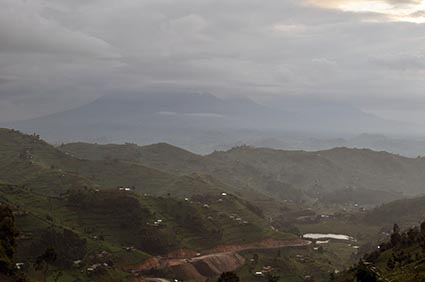
Each of the hills had rows of crops carefully planted across it, and roads meandered around through these hills. This beauty, however, did not prepare me for the shock that awaited me the following day.
The next morning, I set out for the church where I would interview the staff. It was another bright beautiful day, and the hills looked smoky. Chris, the partnership facilitator for Kisoro, walked me to the church where the Batwa lived in an open space along the path to the church.
I saw small and short ramshackle tent-like structures made of bamboo shoots, old rugs, polythene bags and sisal sacks that were covered in dust and black smoke that had settled on them. The surrounding area was dirty and smelly.
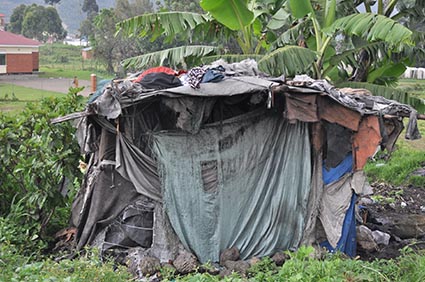
My stomach clenched and I could not breathe for a moment. I begged Chris to tell me it was all a mistake, but he could not. Then a few people started crawling out of the structures. It was real, yet so unbelievable.
As we walked down the path to the church, I could see children with sad faces and adults that had been beaten hard by life.
At the church, I learned that the Batwa were driven from the Mgahinga and Echuya forests around 1992, when the government forced them out to create game and forest reserves. They had lived there and survived on hunting and gathering fruits for centuries.
The Batwa were left homeless, with no land compensation since they did not own the land in the forest. They resorted to living on any open land they found, and they built only temporary shelters.
In Kisoro, the Batwa were not well received by the locals. They were, in fact, isolated and despised. Pastor Mbonye the overseer of the Kisoro Hill Child Development Center tells us,
“When they came, they were discriminated against because they don’t bathe and they smell. Whenever there are parties, they gather to beg for food because they do not have a source of income.
People would not employ them. People constantly chase them away and insult them because they consider them an embarrassment.”
When we first partnered with Kisoro Hill Baptist Church, Pastor Mbonye used the opportunity to register 11 Batwa children. It was difficult, however, to secure these children in the Child Sponsorship Program because many times they did not attend the center activities and would miss school.
Only two children remain today, and Budaratinya is one of them.
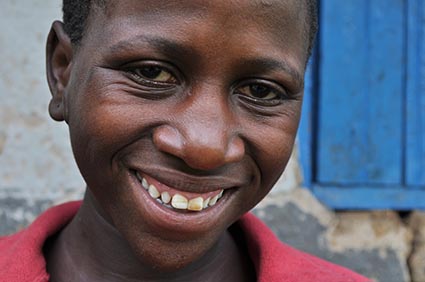
Budaratinya moved from one of the flimsy structures to a semi-permanent house with her mother. It all seemed like a dream for them. Her mother recalls,
“Before Pastor Mbonye brought us to live in this house, we lived with the rest of the Batwa. Those houses were very cold at night and we were always scared of snakes and animals.
In fact, one morning I woke up and I saw a snake just a few centimeters away from my head. I was scared and screamed. My neighbors came and rescued me and killed it, but today I feel very safe thanks to the pastor for his help.”
Besides being provided housing, Budaratinya also received free medication, food, education, scholastic materials, and training in hygiene and food security. She even made a few friends.
Budaratinya is now hopeful for a bright future, and her desire is to take care of her mother. She would like to become a nurse when she grows up so that she can help others.
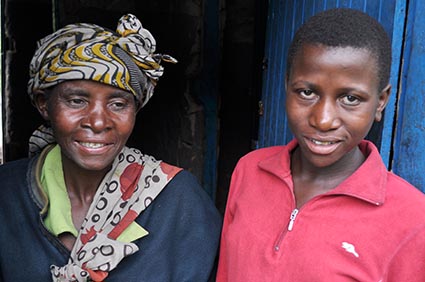
While Budaratinya’s is a happier story, the Batwa as a whole are faced with great challenges since they do not own land or property.
They also lack food, education, social acceptance and political representation at a national level. And other agencies’ funds designated to help the Batwa are often unfairly diverted to other tribal groups.
Perhaps the saddest part of it all, though, is that children are born in such an environment, and this kind of lifestyle is all they know.
Innocent children learn to beg at an early age instead of learning skills that will help them provide for themselves. They do not have education, hygiene and sanitation, and most of them do not know the saving grace of Jesus Christ.
Many children suffer in this world, but the Batwa children are forgotten by the world.


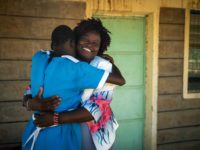
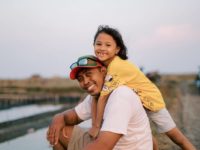
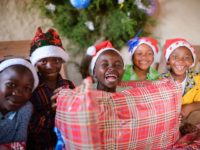


6 Comments |Add a comment
I just recently had the pleasure of visiting Kisoro Hill and the child development center. Our guide was the Pastor. He took us to work at many CDC’s throughout Kisoro. How can I finds out if some of those children I met need sponsors? I plan to return next summer.
Amy: [email protected]
Hi Amy! This is so great! I’m excited that you’d like to advocate for these children! I looked really quick and there are no children available for sponsorship at this project (UG135) right now. However, some of these children could be on hold so that we can try to find sponsors for them. Check back by emailing [email protected] to see if there are any children that we can put on hold for you from this project. We’d be happy to send you their info so that you can try to find sponsors for them. 🙂
How many children are cared for by the Kisoro Hill Development
Center?
Sorry, but I need clarification- does the article say out of the 11 original children only 2 remain or more Batwa chldren are cared at this time?
I am interested in supporting the center but would like more information. Can you provide more information
regarding that project? thank you
Oh no worries! We can check that for you so feel free to either e-mail us at [email protected] or call us at (800) 336-7676. Whether you call or e-mail let the rep know that you’d like to sponsor a Batwa child in Uganda at the Kisoro Hill Development Center. Let me know if any other questions come up!
Are there projects specifically in the Batwa community or plans to try to open one?
Hi Nina! The Kisoro Hill Child Development Center is the center that is working with the Batwa community.